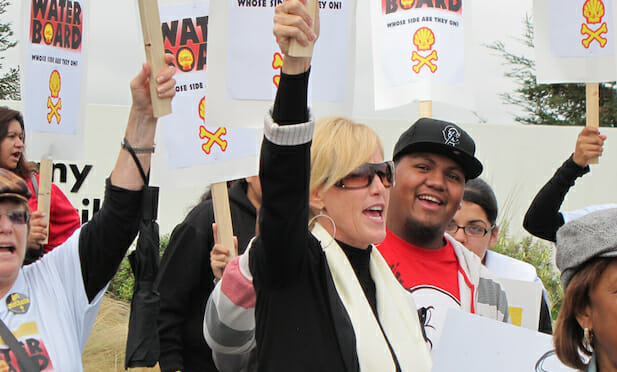Last Call at the Oasis

The production company that brought us An Inconvenient Truth, about global climate change, and Food, Inc., about the American food industry, now tackles the international water crisis with this thoroughly researched, cleverly presented, awfully depressing documentary by Jessica Yu. Since winning an Oscar for her documentary short Breathing Lessons: The Life and Work of Mark O’Brien, Yu has carved out an eclectic career of esoteric documentaries (In the Realms of the Unreal, Protagonist) and popular television (The West Wing, Grey’s Anatomy). Here, she builds what she calls a “structured mosaic” of startling statistics and memorable personalities that leave a distressing impression—if not complete understanding—of the decline of the world’s water supply.
Last Call at the Oasis addresses the deterioration of both the quantity and quality of the earth’s drinking water. Water may cover 70 percent of the planet’s surface, but only one percent of that is potable—and it’s disappearing fast.
Focusing on the United States since America has the largest water footprint in the world, the film marvels at water usage in the city of Las Vegas, where fountains and canals create a fantasy world for tourists in the middle of the desert, and the California Central Valley, parts of which are semi-arid yet which grows one-quarter of the country’s food. All that water has to come from somewhere, and when those sources are tapped, it’s not without consequences. The filmmakers then visit Australia, where a 10-year drought has devastated farmers, to demonstrate where the U.S. could be headed.
What about the water cycle, you might ask, which taught us in grade school how H2O is recycled as liquid, vapor and ice but never really lost? Although this very question is acknowledged in the film, exactly how we’re using water faster than it can be replenished isn’t sufficiently explained before we move on to the next issue: water quality.
-

-

-

-

-

-

-

-

-

-

-

-

-

-

-

-

-

-

-

-

-

-

-

-

-

-

-

-

-

-

-

-

-

-

-

-

-

-

-

-








































